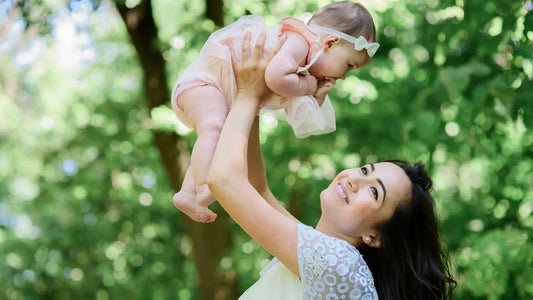Understanding Bug Bites in Infants: Prevention and Treatment Tips
Are you concerned about bug bites damaging your child’s delicate skin? Common knowledge about bug bites, including treatment and prevention, can make a big difference.
Introduction
Bug bites are common, but that does not mean they are harmless. Bites can be a concern, especially for infants. Being small and delicate, these bites can come from mosquitoes, ticks, spiders, bees, wasps, and ants. They can even cause severe infections in infants.
It is important to gather knowledge about bug bites to ensure your child's prevention and treatment of bites from bugs and the associated risks.
How to Identify Bug Bites
Usually, a small red bump appears on the bitten area. Itching and irritation start shortly after the bump appears. Sometimes, mild swelling also develops. Depending on the bite in infants, a water blister may occur.
Prevention Tips for Bug Bites
- Use insect repellent: The use of a low-chemical repellent is helpful. However, it should not be used on children under 2 months old, and you should consult your pediatrician before use.
- Cover skin: Dress your baby in appropriate clothing that covers their skin completely. Use a long-sleeved shirt and long pants, and tuck the shirt into the pants for full coverage.
- Avoid excessive water: Avoid pools, ponds, birdbaths, and gutters. Get rid of standing dirty water: Dirty water collected in empty pots, toys, gutters, and kiddie pools breeds many bugs, such as mosquitoes and fleas, and should be cleaned out.
- Avoid contact with insect nests: Be aware of any insect nests around your home and clean them if you find any. Do not let your child approach them.
- Cover foods and drinks: Always cover your food and beverages to avoid infection from houseflies.
- Dispose of garbage: Piled-up garbage is home to many bugs, so make sure to throw it out regularly.
- Fresh bedding: Keep your baby’s bedding clean and make fresh bedding every day to avoid bed bugs.
Treatments for Bug Bites in Infants
- Wash the bitten area.
- Use a cold compress to relieve swelling and pain.
- Apply antiseptics to reduce itching.
- Avoid scratching or creams with harsh chemicals.
- Reduce pain with age-appropriate painkillers.
- Use hydrating baby body lotion to calm itchiness caused by bug bites.
- Monitor for infection and consult a doctor if you see the following symptoms persisting for a long time:
- Redness
- Irritation
- Itching
- Swelling
- Pus blister
- Fever
Do not use painkillers, antiseptics, or other medicines without proper consultation from expert pediatricians. We do not advise you to act on your own.
Conclusion
Bug bites may not feel like a massive concern, but when it comes to your little, delicate child, parents need to keep everything in check. Bug bites can cause severe infection on your child’s skin. While full clothing, avoiding water, and keeping garbage clean help in preventing bugs, you should also take major steps for treatment to stop the infection from spreading if the child gets bitten. Use repellent and antiseptics only with a doctor’s prescription. Do not wait to consult a pediatrician if you notice any symptoms of severe infection.
You can use natural baby products that offer relief from bug bites to protect your baby from bug bites and harsh chemicals.
Shop for the Best Baby Care Products
FAQs
Q1: How do you treat bug bites in infants?
Ans: Wash the bump, cold-press it, and apply antiseptic for relief from irritation and itching.
Q2: What can I put on my child to prevent bug bites?
Ans: Use insect repellent.
Q3: Does breast milk help bug bites?
Ans: Yes, if the baby is still lactating, applying breast milk helps a lot.
Q4: How do you stop a bug bite at home?
Ans: Keep your home clean, use bed nets, make fresh bedding, and use repellents.
Q5: Does coconut oil repel mosquitoes?
Ans: Fatty acids present in coconut act as a natural repellent and provide long-lasting effects.




